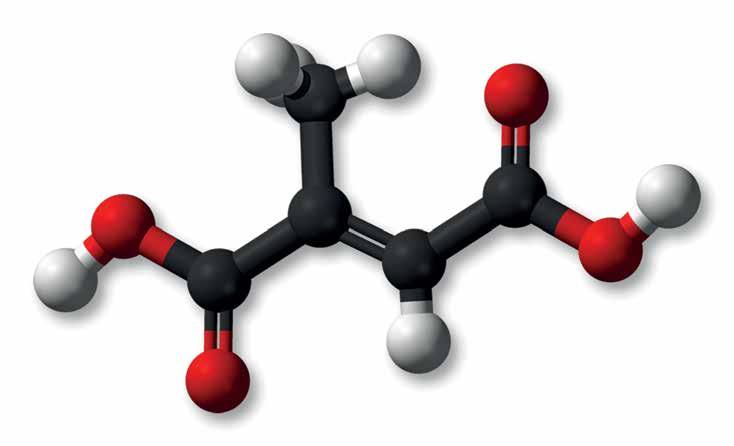
1 minute read
A decade after itaconic acid, here comes mesaconic acid
In 2013, LCSB researchers discovered that immune cells in the brain can produce itaconic acid, a substance that fights off bacteria and inhibits inflammation. It was the first proof of an endogenous antibiotic in the brain and, back then, their publication in the scientific journal PNAS won an FNR Best Publication Award. Almost ten years later, this ground-breaking result is still bearing fruit: in 2022, an international research team, including LCSB alumni and current researchers, discovered anothereven more promising - anti-inflammatory substance produced by our immune cells.
For the past decade, Prof. Karsten Hiller has conducted research on metabolic products that are involved in the human immune system. First, as the principal investigator of the Metabolomics group at the LCSB, and currently as the head of the Department of Bioinformatics and Biochemistry at the Braunschweig Integrated Centre of Systems Biology in Germany. After discovering that immune cells in the blood and brain of mammals produce itaconic acid, Karsten Hiller further investigated its mode of action and possible applications. Several of these projects were conducted within the framework of a binational research programme between Karsten Hiller and Prof. Dirk Brenner, head of the Immunology & Genetics group at the LCSB and of the Experimental
Advertisement
“Mesaconic acid can return an overactive immune system back to its normal state,” explains Brenner. Interestingly, their results, published in Nature Metabolism in 2022, also highlighted that the two substances have a distinct impact on metabolism.
Unlike itaconic acid, mesaconic acid does not affect succinate dehydrogenase, an enzyme playing a central role in cellular metabolism. The fact that mesaconic acid has immunomodulatory properties but interferes to a lesser extent with the metabolism makes it interesting in terms of therapeutic potential. “We will now investigate further to better understand the underlying metabolic processes. We have already submitted another joint research proposal for this purpose,” details Dirk Brenner. Once the researchers have precise answers, concrete pharmacological studies could be launched.
Mesaconic acid could hence become a candidate for treating diseases in which the immune system is overactive: Septic shock for example, or autoimmune diseases such as psoriasis and inflammatory bowel disease. “Given that it is a substance produced naturally by the body, it might constitute an interesting alternative to avoid side effects typically associated with antiinflammatory drugs,” concludes Dirk Brenner. ¢ and Molecular Immunology laboratory at the Luxembourg Institute of Health. In a recent study, they discovered that another metabolic product always occurs together with itaconic acid: mesaconic acid.
Mesaconic acid is a chemical compound that the body produces from itaconic acid. With the help of an international research consortium, the two researchers showed that this metabolite has an anti-inflammatory effect of similar strength to that of itaconic acid.










